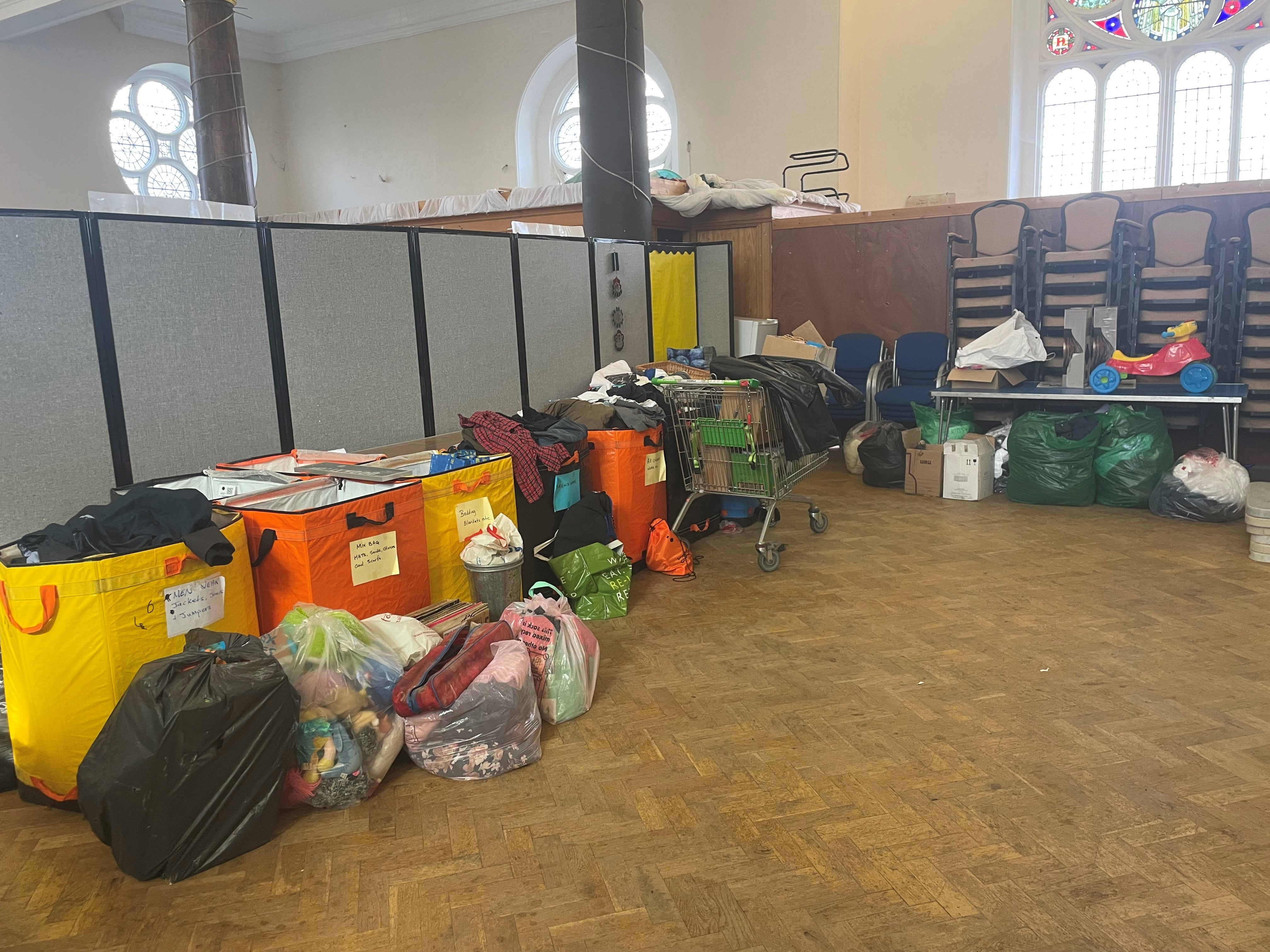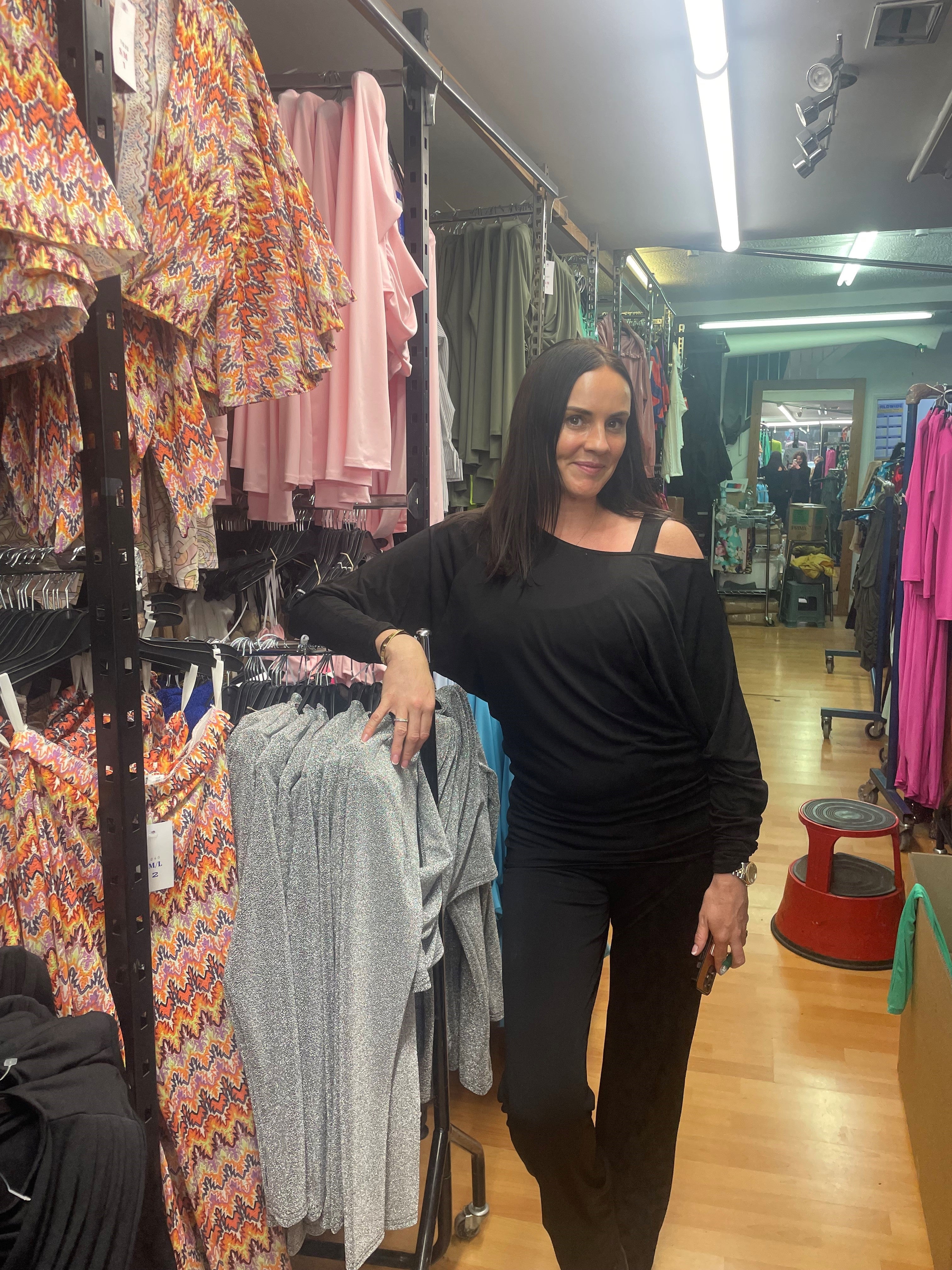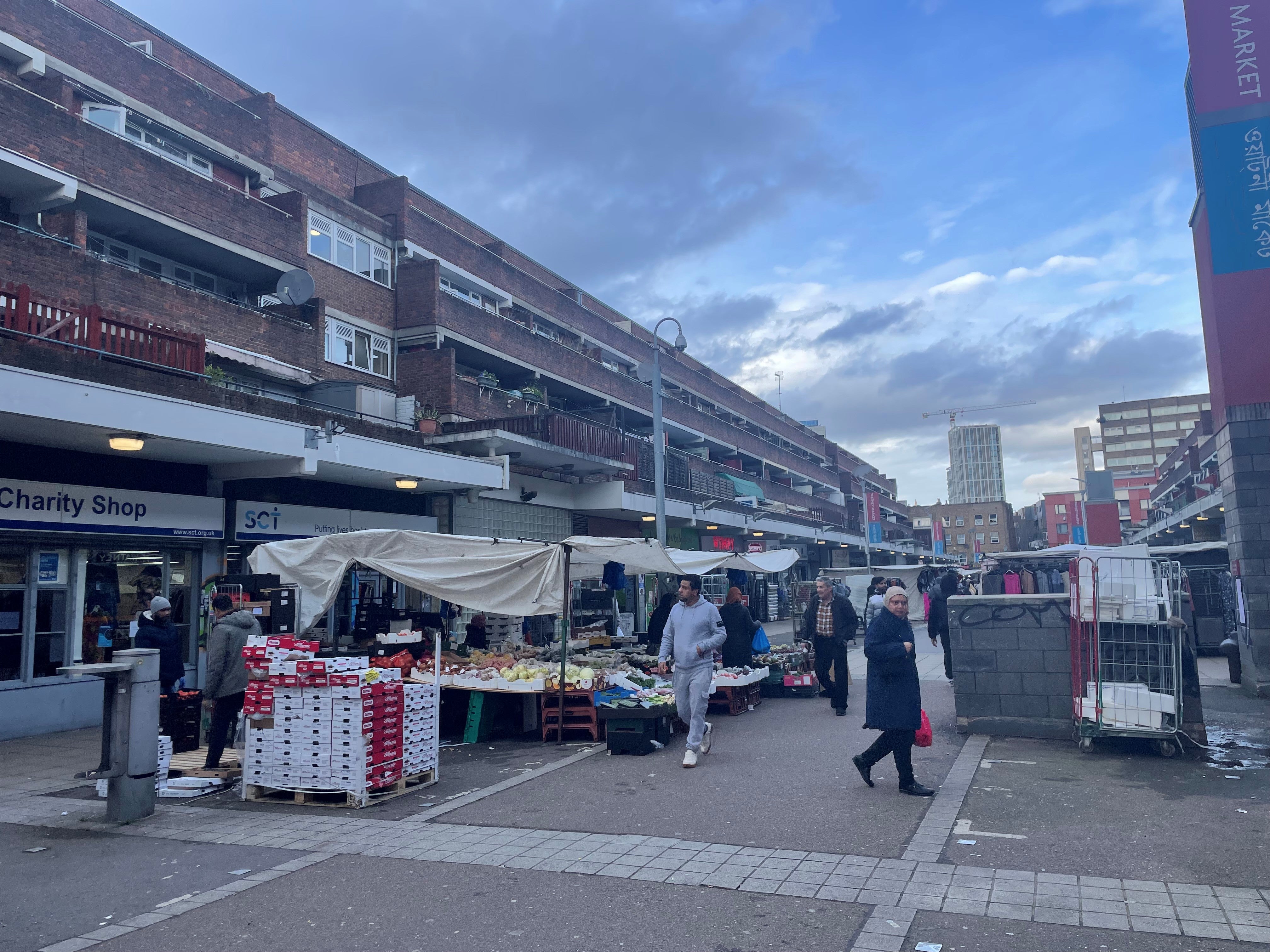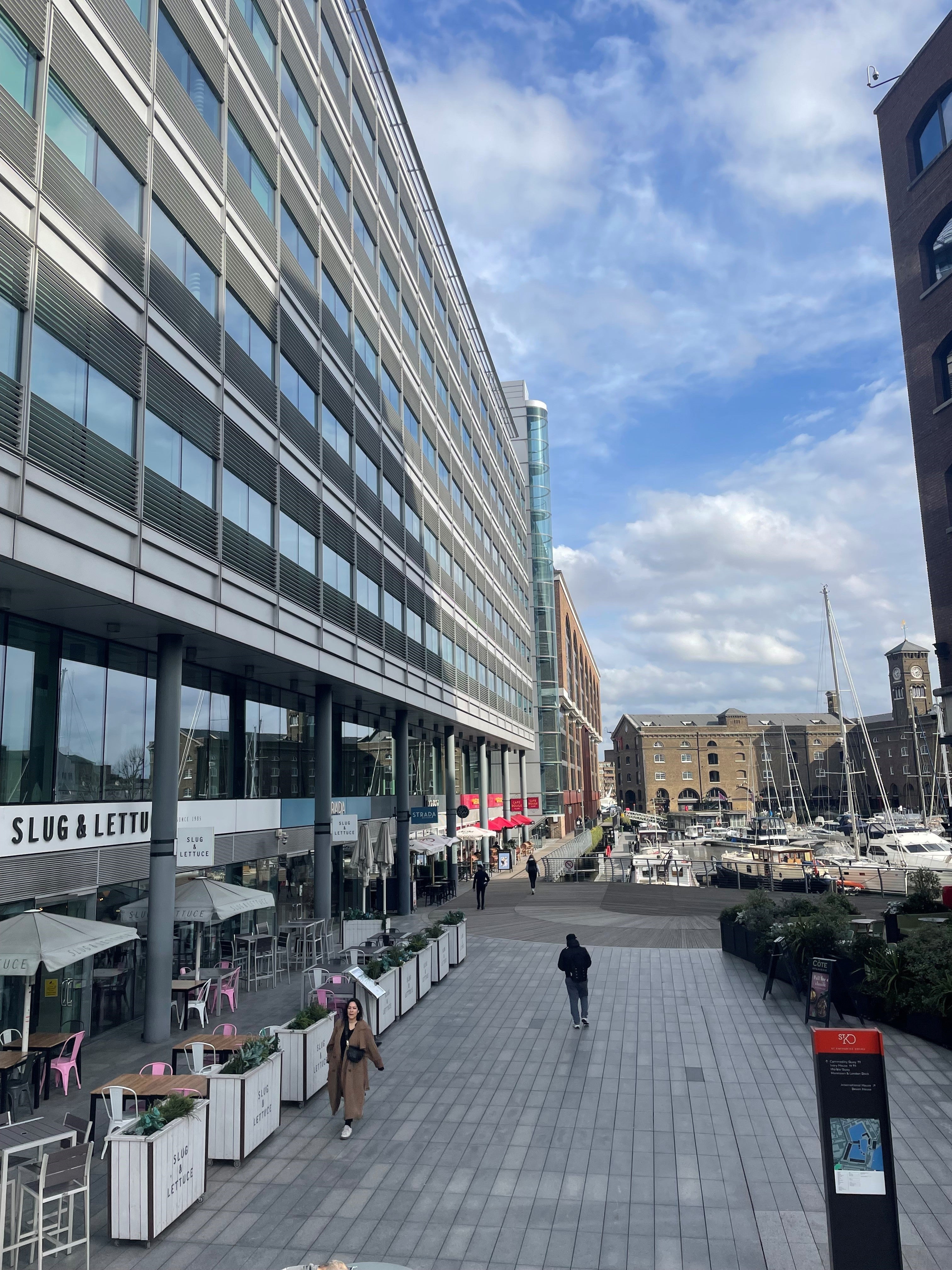In the London borough with the widest wealth gap, the Budget leaves many confused
Views ranged from ‘thrilled’ to ‘disappointed’ in this polarised area

Your support helps us to tell the story
From reproductive rights to climate change to Big Tech, The Independent is on the ground when the story is developing. Whether it's investigating the financials of Elon Musk's pro-Trump PAC or producing our latest documentary, 'The A Word', which shines a light on the American women fighting for reproductive rights, we know how important it is to parse out the facts from the messaging.
At such a critical moment in US history, we need reporters on the ground. Your donation allows us to keep sending journalists to speak to both sides of the story.
The Independent is trusted by Americans across the entire political spectrum. And unlike many other quality news outlets, we choose not to lock Americans out of our reporting and analysis with paywalls. We believe quality journalism should be available to everyone, paid for by those who can afford it.
Your support makes all the difference.People in one of the simultaneously most deprived and richest areas in England have given their reaction to the chancellor’s Budget – with a mix of mistrust and delight.
Jeremy Hunt unveiled his Budget on Wednesday with plans to boost pensions, expand free childcare and cut duty on fuel and draft beer. He also revealed he would add £11bn to Britain’s defence budget in the next five years and extended energy bill support for another three months.
Tower Hamlets, London, has one of the largest wealth gaps in London, standing at 29.3 per cent according to the Office for National Statistics. Only Hackney places higher in London.
Both Tara Uddin and Sister Christine Frost, who work at the food bank Neighbours in Poplar, in the shadows of the towering Canary Wharf skyscrapers, said many residents they support are solely focused on “survival”, not on reading up on the Budget. Not being online, the unaffordability of newspapers and language barriers have also made accessing the Budget difficult. Ms Uddin said: “If you’re in that situation then the last thing you think about is the Budget. It just hits you when it hits you.”

By the end of March, the food bank will have handed out 35,000 meals since 2020. The Poplar neighbourhood ranked second lowest in median household income in Tower Hamlets in 2019, according to the council.
Venancio Neto, 33, who uses the food bank, said he wished the government had announced that discounts were available on certain items for those on low incomes. “It’s been a difficult time,” he said. “Everything’s going up and things are getting tight. Whenever my pay cheque comes through, there will always need to be a calculation of where things are going.”
Over a tenth of working residents in Tower Hamlets earn more than £100,000 a year, according to the Council’s latest Poverty Review, compared to only 2 per cent for London overall. Yet half of households in the area have an annual income of below £50,000 and over a fifth have an income of only £15,000 or less. Nearly half of those in the borough are claiming some form of benefit.

Mr Neto said the Budget will have a positive impact because “every little helps”, in particular the chancellor’s confirmation that the energy price guarantee will be extended for another three months.
He has two young children and is only able to work part-time at the moment. But with the expansion of free childcare, he will be able to go full-time in his telecommunications job.
Nizam Uddin, who runs the nursery Little Saint Matthias, said he believes the childcare announcement is a “political stunt”. He asked what would happen to families up until 2024 when the plan starts getting rolled out, if it even ends up getting implemented. Ms Uddin agreed: “There is no assurance these things in the Budget will happen.”

This eroding trust in the government follows the economic chaos caused by Ms Truss’ and Kwasi Kwarteng’s mini-Budget in September, which tanked the pound and brought a swift end to Ms Truss’ premiership.
Mr Uddin added, “All these promises, but where’s the money coming from? [Mr Hunt] didn’t clarify where the money’s coming from. That’s the scary thing. It’s a fairytale budget.”
Jane Farrell-Stoenel, who works at John Zack UK Fashion, Whitechapel, similarly said she “can’t believe anything” when it comes to the Budget, “and it just seems to be getting worse.” She said she no longer reads the news, reflecting a wider apathy among some, which is at least partly borne out of a dwindling faith in the economy improving during the worsening cost of living crisis.

John Zack, 80, who owns the shop, said he’s about to close down. “It’s that bad.” He wanted the government to do more for businesses like his own.
Although he added, “I think [Mr Hunt] has done his best.” And he is pleased with the announcement of plans to boost pensions.
Walking along a road in Shadwell, which had the third lowest median household income in Tower Hamlets in 2019, according to the council, expecting mother Katherine Fall said she is “really happy” about the free childcare expansion. She said she calculated that when she went back to her job in the NHS she would have been spending 75 per cent of her pay on nursery costs. “Which is ridiculous and made me feel like what’s the point,” she said. “But the free childcare is a bit slow to come in, so I am disappointed I’ll have to go back to work sooner.”

In the wealthier St Katharine’s and Wapping area, which had the highest median household income in Tower Hamlets in 2019, Diana Rooney said she is “thrilled“ about the childcare announcement. “It’s brilliant news, it’ll make a difference to so many,” she said.
According to recent Tower Hamlets Council data, 56 per cent of children were in low-income households.
Strolling along St Katharine Docks Marina, Martin Colenutt expressed his concerns about society’s inequalities and thought this government is incapable of addressing them. Referring to the pensions boost, he said, “It isn’t addressing the problems we face as a nation. It’s really quite disappointing.”

Duncan, who works in the financial sector and has been a Conservative voter all his life, had similar misgivings about the pensions plan. “They’re only focused on highly paid people who are disinclined to work because they’re rich enough,” he said.
Mr Hunt announced he will abolish the lifetime allowance limit on pensions and that he will increase the annual tax-free allowance from £40,000 to £60,000.
As an alternative way to encourage economic growth, Duncan (who only wanted to give his first name) suggested the introduction of incentives for employers to take on more elderly workers.

Standing outside a Waitrose and Partners store, Barbara Baldwin, who works in the stock market, thought more incentives should have been given to businesses, rather than the increase in corporation tax from 19 to 25 per cent. In general, she believed now is the wrong time to increase tax when the economy is so fragile. And she wanted more focus to be given to renewable energy, believing this is where the future of job creation lies.
But overall, she said, “[Mr Hunt] did the best he could.”
Conversely, Mr Colenutt said, “This was the government’s final chance to get something right and salvage something. I thought it was a real missed opportunity.”


Join our commenting forum
Join thought-provoking conversations, follow other Independent readers and see their replies
Comments